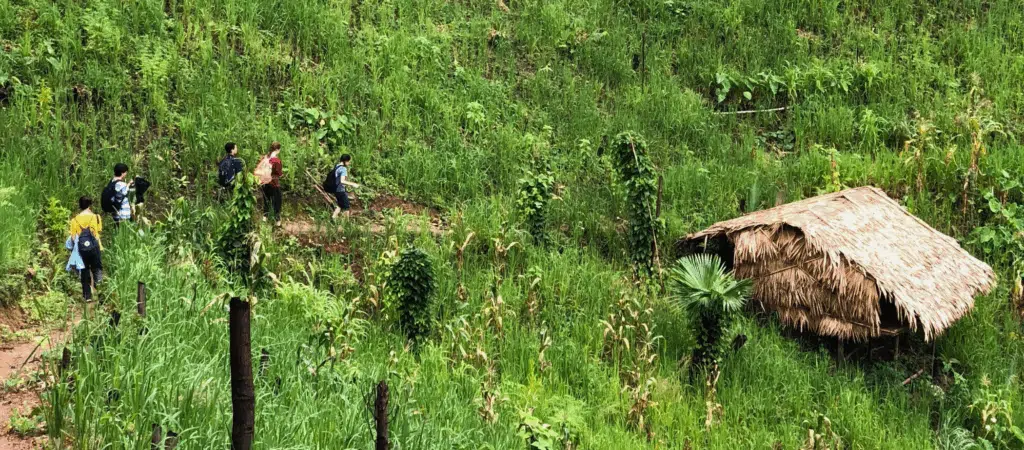We begin our program in Chiang Mai, the cultural capital of northern Thailand. In our first days, we stay near the Old Town, meet NGOs working in cultural conservation, indigenous rights, traditional medicine, and organic farming, and orient to health, safety, and cultural considerations. We also explore markets and temples to learn about Thai culture.
From Chiang Mai, we travel to Pun Pun organic farm, a community initiative supporting traditional agriculture and sustainable food systems. Here we learn about permaculture, seed saving, natural building, and other approaches to revitalizing human-plant relationships, while engaging in project-based work and enjoying group meals.
Next, we journey to the Karen village of Hua Hin Lad Nai for a multi-day homestay—the centerpiece of our experience. This community has intentionally protected traditional wisdom and resisted electricity to preserve cultural identity. Students learn from youth leaders, farmers, and spiritual guides about cultural preservation, alternative models of development, and human-nature relationships while working closely with food and medicinal plants.
We end at an ecolodge in the hills outside Chiang Mai, reflecting on our time in the village. We visit a Buddhist temple, meet monks for a Q&A on Theravada Buddhism and its ties to land and animist traditions, and conclude with a celebratory dinner and closing ceremony before returning home.




